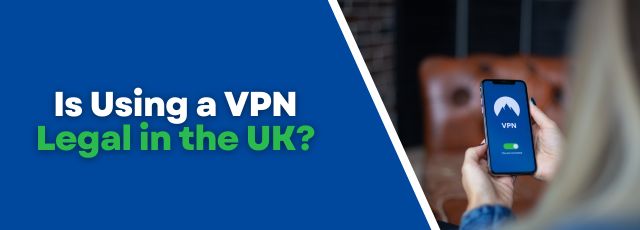If you’re concerned about internet safety and security, you may have heard of using a VPN to keep your data from prying eyes and for other purposes. VPNs are illegal in some countries, but is the United Kingdom one of them? We’ll explore the legalities of using a VPN in the United Kingdom, why you would want to use one, and why they are illegal in some parts of the world.
What Is a VPN?
A VPN is a computer or server in a different location from yours that your device uses to access the Internet. It has multiple purposes, including telling a website you are in a different location and ensuring that the things you are doing online aren’t visible to anyone but you through computerised encryption.
Why Would a VPN Be Illegal?
First, a VPN tool is not illegal in the United Kingdom. With that said, there are some countries where the use of such software is restricted or unlawful, including Russia, North Korea, and China.
These countries criminalise VPNs because users often watch videos and access content that their country’s governments find unsavoury. The VPN would shelter these users with privacy from authorities while also making it possible to bypass any restrictions that sites like YouTube or Google might have on their ability to use them.
North Korea has some of the toughest restrictions on the planet, with a list of just 30 websites that people can visit while using the Internet. Most of the websites available in North Korea are made within the country and are—surprise, surprise—about North Korea and its leader.
Censorship in China has similar but less limited results. The country has the “Great Firewall of China,” which keeps users away from some websites it has deemed harmful. China’s Internet providers are state-owned and maintain further control by allowing select VPN providers to build a backdoor for government access.
What You Can Do on a VPN
When using a VPN on your smartphone, computer, or tablet in the UK, you can access almost any website or service and make it appear like you are visiting from a different part of the world. One of the key benefits to making the site or service think you are in a different country or continent is the ability to see content that you might not otherwise be able to see on a streaming service. For example, some streaming providers like Netflix have country and geography-specific libraries. These videos are only shown to people in a specific place, and you’ll need a VPN with a location in that area to see them without going there yourself.
Some Internet users don’t want websites to know much about them, including demographics and location, so they choose to use a VPN. For example, you could buy a product or gamble online more safely through a VPN, as the connection is encrypted and secured. You could even add another layer to safety by exploring one of many notable options for Paysafecard casinos, as paying with a trusted third-party source ensures your actual bank details aren’t out there.
VPNs are also commonly used to download movies, games, and software from websites. In this case, the purpose of the VPN is to ensure that your Internet service provider can’t see what you are doing.
We’ll mention one more use for a VPN that is somewhat common. If you were to head to a local coffee shop or cafe to access their WiFi, you might want to use a VPN so that a sneaky hacker on the same network can’t snoop on what you are doing. This is especially important if you are working with sensitive data or even just logging into your online banking or social media accounts. Adding the layer of encryption prevents others from seeing what you are up to. To many, needing a VPN for this purpose seems odd, but the threat of identity theft from simply logging into WiFi is real!
VPNs Are Legal, but Some Things Aren’t
If you are new to VPNs, you might wonder why all this matters. We’ll put it really simply: even though the software you use to download movies or games or access other content is legal to use, the actions you take with it might not be. In most cases, there isn’t a law against watching another country’s Netflix library, but downloading the newest Microsoft Office software and cracking it to make it free is illegal.
With all of this said, we offer a small piece of caution: VPNs provide legal protection for you in a variety of ways. Some VPN providers keep logs of where you want when logged in. Some do not. If you are truly serious about your security, we suggest finding one that doesn’t keep logs at all. This matters if the government comes knocking.
Conclusion
If you intend to use a VPN in the United Kingdom, you are legally allowed to do so, though what you choose to do with it could open you up to penalties, including lawsuits and Internet restrictions. If you are planning to use a VPN for purposes besides protecting basic personal information and sensitive work data, consider yourself safe. Otherwise, ensure that the VPN doesn’t keep logs so that software creators, governments, and businesses won’t know it is you!
